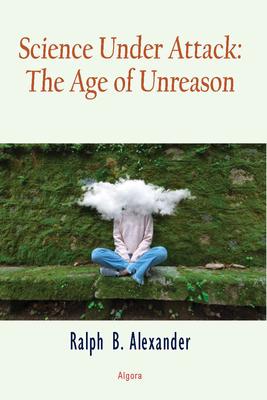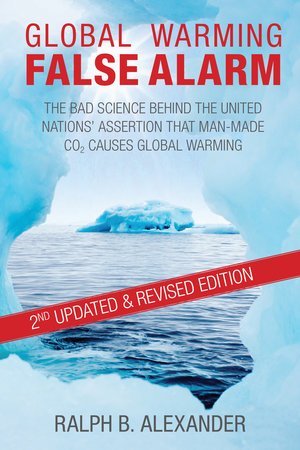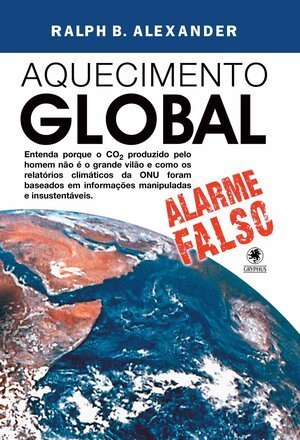The Deceptive Catastrophizing of Weather Extremes: (1) The Science
/In these pages, I’ve written extensively about the lack of scientific evidence for any increase in extreme weather due to global warming. But I’ve said relatively little about the media’s exploitation of the mistaken belief that weather extremes are worsening because of climate change.
A recent four-part essay addresses the latter issue, under the title “Did Exxon Make It Rain Today?” The essay was penned by Ted Nordhaus, well-known environmentalist and director of the Breakthrough Institute in Berkeley, California, which he co-founded with Michael Shellenberger in 2007. Its authorship was a surprise to me, since the Breakthrough Institute generally supports the narrative of largely human-caused warming.
Nonetheless, Nordhaus’s thoughtful essay takes a mostly skeptical – and realistic – view of hype about weather extremes, stating that:
We know that anthropogenic warming can increase rainfall and storm surges from a hurricane, or make a heat wave hotter. But there is little evidence that warming could create a major storm, flood, drought, or heat wave where otherwise none would have occurred, …
Nordhaus goes on to make the insightful statement that “The main effect that climate change has on extreme weather and natural disasters … is at the margins.” By this, he means that a heat wave in which daily high temperatures for, say, a week reached 37 degrees Celsius (99 degrees Fahrenheit) or above in the absence of climate change would instead stay above perhaps 39 degrees Celsius (102 degrees Fahrenheit) with our present level of global warming.
His assertion is illustrated in the following, rather congested figure from the IPCC (Intergovernmental Panel on Climate Change)’s Sixth Assessment Report. The purple curve shows the average annual hottest daily maximum temperature on land, while the green and black curves indicate the land and global average annual mean temperature, respectively; temperatures are measured relative to their 1850–1900 means.
However, while global warming is making heat waves marginally hotter, Nordhaus says there is no evidence that extreme weather events are on the rise, as so frequently trumpeted by the mainstream media. Although climate change will make some weather events such as heavy rainfall more intense than they otherwise would be, the global area burned by wildfires has actually decreased and there has been no detectable global trend in river floods, nor meteorological drought, nor hurricanes.
Adds Nordhaus:
The main source of climate variability in the past, present, and future, in all places and with regard to virtually all climatic phenomena, is still overwhelmingly non-human: all the random oscillations in climatic extremes that occur in a highly complex climate system across all those highly diverse geographies and topographies.
The misconception that weather extremes are increasing when they are not has been amplified by attribution studies, which use a new statistical method and climate models to assign specific extremes to either natural variability or human causes. Such studies involve highly questionable methodology that has several shortcomings.
Even so, the media and some climate scientists have taken scientifically unjustifiable liberties with attribution analysis in order to link extreme events to climate change – such as attempting to quantify how much more likely global warming made the occurrence of a heat wave that resulted in high temperatures above 38 degrees Celsius (100 degrees Fahrenheit) for a period of five days in a specific location.
But, explains Nordhaus, that is not what an attribution study actually estimates. Rather, “it quantifies changes in the likelihood of the heat wave reaching the precise level of extremity that occurred.” In the hypothetical case above, the heat wave would have happened anyway in the absence of climate change, but it would have resulted in high temperatures above 37 degrees Celsius (99 degrees Fahrenheit) over five days instead of above 38 degrees.
The attribution method estimates the probability of a heat wave or other extreme event occurring that is incrementally hotter or more severe than the one that would have occurred without climate change, not the probability of the heat wave or other event occurring at all.
Nonetheless, as we’ll see in the next post, the company WWA (World Weather Attribution), founded by German climatologist Friederike Otto, has utilized this new technology to rapidly produce science that does connect weather extremes to climate change – with the explicit goal of shaping news coverage. Coverage of climate-related disasters now routinely features WWA analysis, which is often employed to suggest that climate change is the cause of such events.
Next: The Deceptive Catastrophizing of Weather Extremes: (2) Economics and Politics





